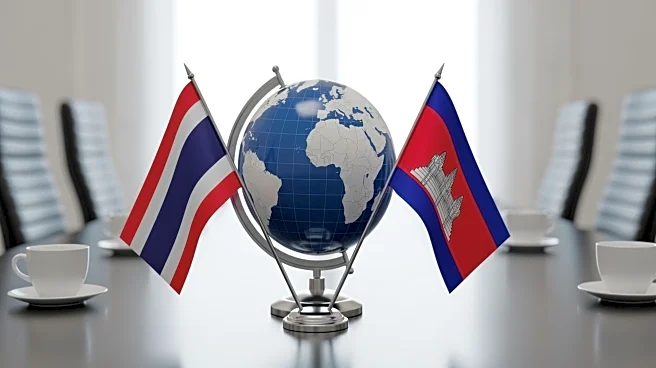What's Happening?
President Donald Trump attended the ASEAN Summit in Kuala Lumpur, where he played a role in facilitating a peace agreement between Thailand and Cambodia. The two countries had been in conflict over a border dispute that escalated into open hostilities
in July. The peace deal, brokered with the help of Malaysian Prime Minister Anwar Ibrahim, marks a significant diplomatic achievement for ASEAN, which has faced criticism for its inability to resolve regional conflicts. Trump's presence at the summit also resulted in trade deals with several ASEAN member states, including Cambodia, Thailand, Malaysia, and Vietnam, highlighting the U.S.'s strategic economic interests in the region.
Why It's Important?
The peace agreement between Thailand and Cambodia is a rare diplomatic success for ASEAN, an organization often criticized for its limited influence in resolving regional disputes. President Trump's involvement underscores the U.S.'s continued interest in Southeast Asia, both in terms of security and economic partnerships. The trade deals signed during the summit reflect the U.S.'s strategy of using economic incentives to foster peace and stability. This development could strengthen U.S.-ASEAN relations and enhance the U.S.'s influence in a region where China is also vying for dominance.
Beyond the Headlines
ASEAN's principle of non-interference has often been seen as a limitation in addressing internal conflicts among member states. However, the successful mediation of the Thailand-Cambodia conflict suggests that ASEAN can still play a constructive role in regional diplomacy. The summit also highlighted the importance of economic diplomacy, as trade agreements can serve as tools for conflict resolution. The U.S.'s engagement in the region may also serve as a counterbalance to China's growing influence, potentially reshaping the geopolitical landscape in Southeast Asia.
















